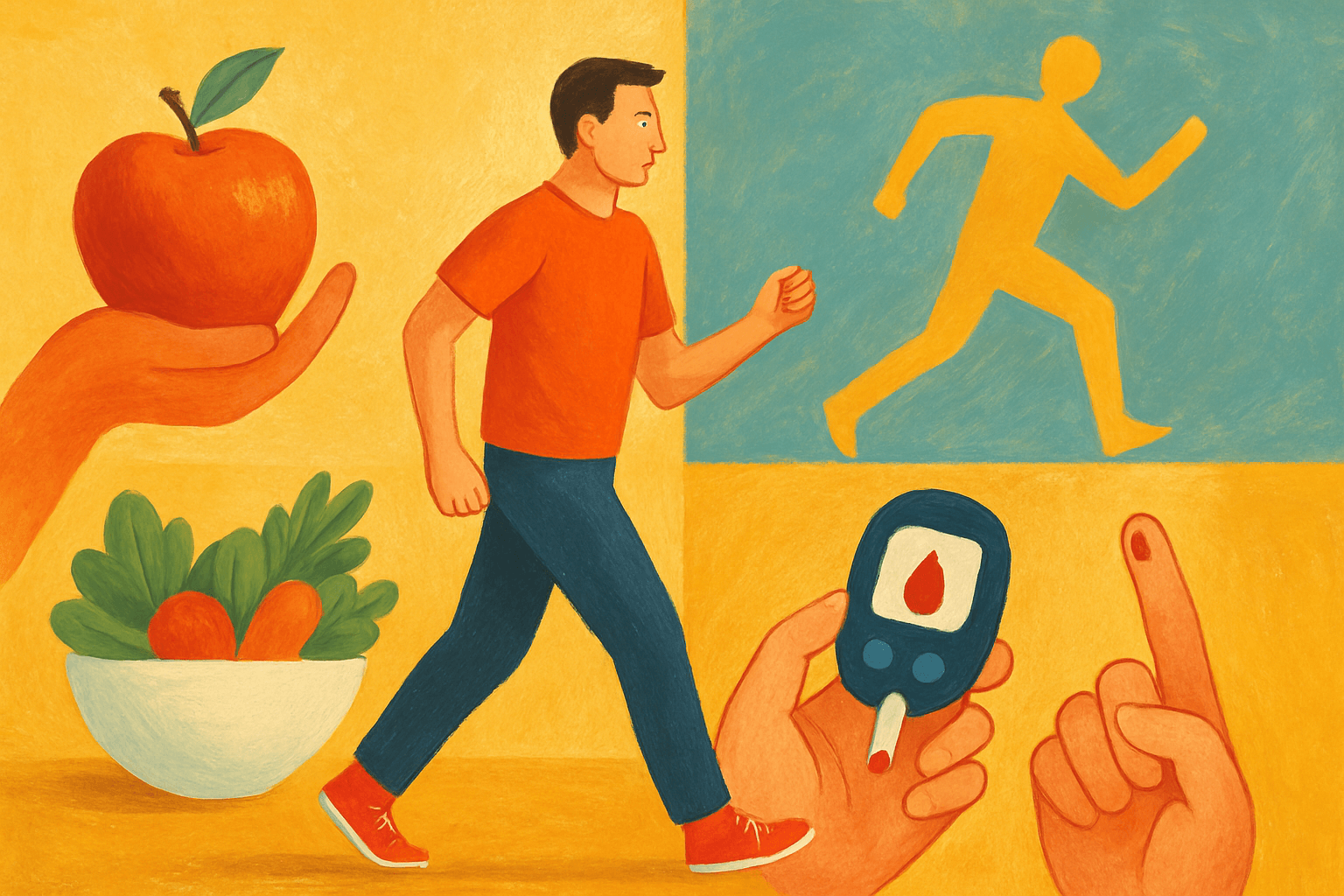A concise guide on how dietary choices and regular physical activity help control blood glucose, reduce complications, and improve quality of life for people with type 2 diabetes.
Evidence-based strategies for managing type 2 diabetes through nutrition, exercise, monitoring, and behavior changes.
Why lifestyle matters
Lifestyle interventions are foundational for managing type 2 diabetes. Healthy eating and regular activity improve insulin sensitivity, aid weight management, and lower the risk of cardiovascular complications.
Balanced nutrition
Focus on whole foods: non-starchy vegetables, lean proteins, whole grains with a low glycemic index, healthy fats, and controlled portions of carbohydrate. Limiting sugary drinks, processed foods, and excessive refined carbohydrates helps prevent blood sugar spikes.
Exercise recommendations
Aim for at least 150 minutes per week of moderate-intensity aerobic activity (such as brisk walking) plus resistance training two to three times weekly. Physical activity lowers blood glucose, supports weight control, and improves cardiovascular fitness.
Monitoring and practical tips
Regularly monitor blood glucose as advised by your healthcare team, keep a food and activity log, and work with dietitians or diabetes educators to set realistic goals. Small, sustainable changes often yield the best long-term results.
